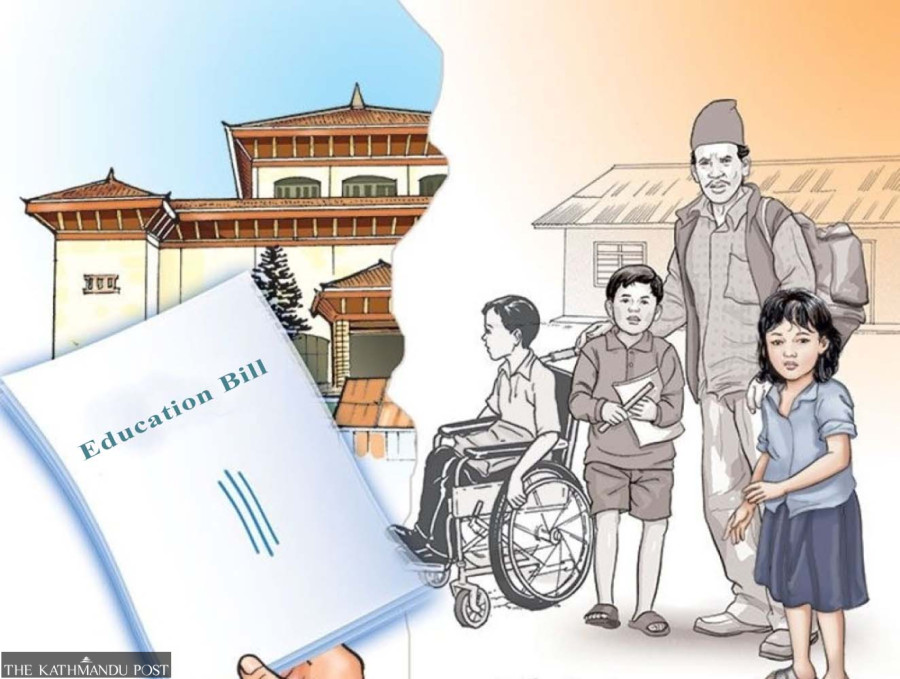Editorial
Mixed bag
The new Education Bill still leaves space for a tussle between the federal and local governments.
After a significant delay, the government has finally tabled the Federal Education Bill, which is aimed at amending and integrating laws related to education, in Parliament. For eight years after implementing federalism, the country waited for a bill to guide the education policy of a new polity. In the intervening years, government after government showed nostalgia for a unitary education policy reminiscent of the centralised state structure of the yore. The very tabling of the bill, thus, is a triumph for those awaiting an education policy suited to a federal republic. More than that, if it gets through the upper and lower houses of Parliament, it will help clear the impasse in education created by lack of coordination between federal and local levels. However, the bill still has some questionable provisions that betray the intent of those at the centre to continue maintaining a hold over how school education is conducted in a federal setup.
At the outset, the bill has not removed the most contentious clause of reinstating District Education Offices and the Department of Education that have little relevance in a federal setup. Those very institutions will be allowed to prepare question sets, and this keeps open the possibility of conflict between local levels/schools and the education offices. Schedule 8 of the 2015 constitution entrusts local levels with the responsibility of managing school education up to Grade 12, while Schedule 9 considers education as a concurrent jurisdiction of the three tiers of government. It is based on Schedule 9 that the government seeks to give continuity to the existence of those offices. Under this provision, the federal government can open and operate “specialised” schools, including those for the disabled. While the intention behind this cannot be questioned outright, the risk is that the provision could be misused to bypass the local levels to establish schools at the whim of the federal government.
The government has also stepped back from its earlier proposal of mandatorily converting private schools registered under the Company Act into trusts within five years. The new bill has made this provision optional after pressure from private school operators. But this was a foregone conclusion, as those leading the government own private schools or receive election funding from several such schools. While private schools have played a significant role in the advancement of education in Nepal, they have often been exploitative, cruelly capitalising on the failure of public education institutions to offer quality education. In fact, the financial progress of private schools in the country has come at the cost of government schools. Private sector investors from political parties and bureaucracy have systematically wrecked the public education system in favour of private schools. New schools will, however, have to be registered under non-profit trusts, leading to a clear divide of privileges between the old schools and the new ones, making it difficult for the latter to operate.
Meanwhile, the bill has provisions related to the conduct of teachers. These include their responsibility to refrain from physical and emotional abuse of students, alcohol abuse in school and joining political parties, and accepting donations and gifts compromising educational integrity. It even restricts teachers from practising polygamy and engaging in other unethical behaviours. In that sense, the bill, apart from ensuring the autonomy of educational institutions, emphasises the ethical behaviour of teachers, a must for the overall well-being of students, and this is a positive development.




 13.12°C Kathmandu
13.12°C Kathmandu














